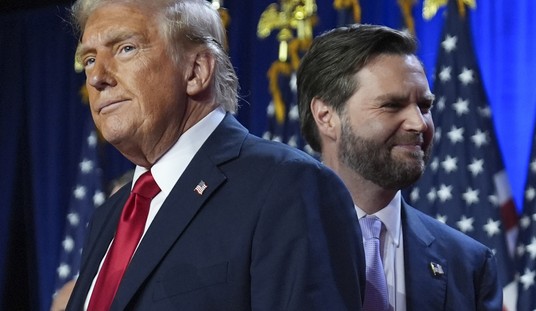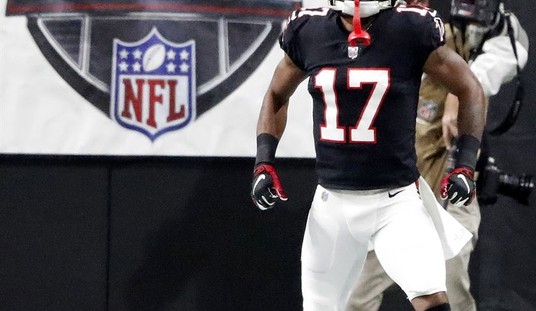 This year around 4th of July time, as in previous years, a few people asked me if I was doing anything to celebrate. Although some American Jewish immigrants in Israel hold 4th of July events, I said that, as usual, I had no such plans.
This year around 4th of July time, as in previous years, a few people asked me if I was doing anything to celebrate. Although some American Jewish immigrants in Israel hold 4th of July events, I said that, as usual, I had no such plans.
Why not? For one thing, I no longer see myself as part of the American polity. My visits to the States now occur only every few years and are quite brief. I feel myself to be foreign there, not knowing the society and its ways nearly as well as I do in Israel.
But what’s wrong with a little “ethnic” nostalgia? Why not go to a little 4th of July party and recall the ethos and ideals of the old country? Isn’t it where you were born and lived the first thirty years of your life?
To answer all that, I need to dig deeper.
I was most firmly within America when I was in my teens. We lived in Clifton Park, New York, a partly built-up, partly rural township where there were almost no Jews. Our house, in the rural part, was on a green patch of land across the road from a cornfield.
In childhood I had had some—mostly religious—interest in my Jewish identity. In my twenties I had both a religious and an intensifying national—centering on Israel—interest in it. In my teens, all that went as far underground as it could; I was interested in fitting in, being popular.
Yet among the bars to my fitting in was anti-Semitism. I never heard it from any of the girls; I heard it from a sizable percentage of the guys. Sometimes it was light and jokey, sometimes nastier. I mostly didn’t react; the distress it caused was too deep, and any reaction would have been extreme. Being on the receiving end of bigotry is traumatic in any case; the more so when there is genocide in the background.
Which raises the issue of how I came to be there in the first place.
In March 1938 the German Nazi army invaded Austria and annexed it to Germany. That meant my parents and their families, living in Vienna, were in trouble. My father was fourteen, my mother twelve.
Eventually, later that year, they and their families emigrated to America. But it took finagling and couldn’t have been done if each family hadn’t already had relatives in the States. America, under the impact of the Depression, had tight immigration policies in those days. There was strong anti-Semitic opposition to Jewish immigration specifically, and even as the danger to German and Austrian Jews mounted under Nazi rule in the 1930s, Jewish immigration quotas were kept low.
I have no yen to blame either countries or individuals for things they did or didn’t do a long time ago. Countries—including Israel—act mainly out of their interests or perceived interests. America’s perceived interest at that time was to keep out all but a few immigrants and not become a haven for endangered Jews.
How did American Jews react? In fact, most of them (Democrats then as today) maintained their fierce loyalty to the Roosevelt administration and soft-pedaled the predicament of Europe’s Jews for fear of further stoking U.S. anti-Semitism. (See the chapter about it in Kenneth Levin’s important book The Oslo Syndrome.)
My parents and their immediate families, no doubt, ended up benefiting from American tolerance and prosperity. Other relatives, who remained in Vienna and were eventually murdered by the Nazis, did not. That’s how it goes in world affairs. The interests or perceived interests of countries and peoples—for example, America and the Jews, or America and Israel—sometimes converge and sometimes diverge, even drastically. To claim or feel that one is simultaneously part of two peoples, or two countries, raises problems.
In June 1982 Israel invaded Lebanon with the aim of ejecting the PLO (Palestine Liberation Organization) from there, after massive shelling of northern Israel by the terror group. I followed the TV and newspaper accounts with grim, all-out intensity.
Israel’s bombing of PLO positions, which were deliberately embedded among civilian populations to use them as human shields, inevitably caused Lebanese civilian casualties. Some claimed the toll of civilian deaths and injuries was too high. As the war—managed by the right-of-center government of Prime Minister Menachem Begin—progressed, that charge was increasingly leveled by the Israeli left.
By August the PLO was holed up in Beirut. Israel, with victory near, subjected its positions to heavy aerial and artillery bombardment. It didn’t play well on TV; while other Western armies had been given a free hand to inflict civilian casualties on the way to winning their wars, Israel wasn’t given such latitude.
President Reagan—whom I admired, and had voted for—was among those who didn’t like it. He called Begin and said, “Menachem, this is a Holocaust.” (As revealed later, he wrote in his diary that he had deliberately used the term.)
It was a pivotal moment for me, one of several around that time. Criticism was one thing, but…“holocaust”? Not even the fiercest critics of the war in Israel said that. Was this “my” president?
It hadn’t been much better in June the previous year when—in a move later hailed as very fortunate for the West—Israel had bombed and destroyed Saddam Hussein’s nuclear reactor in Iraq. At the time, though, the Reagan administration came down heavily on Israel. It backed a UN Security Council condemnation of the raid, suspended a shipment of warplanes to Israel, and cut off its access to crucial satellite intelligence.
The purpose of the raid, though, had been to remove a threat of nuclear annihilation of the Jewish state.
Who was my leader, Reagan or Begin?
Which was my country?
On September 6, 1984—for these among other, sunnier reasons—I moved to Israel with my family, one day before my thirtieth birthday.
Clearly there is a very bright side to U.S.-Israeli relations. These days the alliance is strong, with support for Israel from both sides of Congress and large majorities of the population expressing sympathy for Israel in polls.
Clearly, too, common values are one of the reasons for the alliance. Both countries are pioneering democracies; both were established by immigrants fleeing persecution. Jerusalem and the Holy Land speak deeply to many Americans.
At the same time, it was only after the 1967 Six Day War—when Israel dramatically proved its military prowess—that the U.S.-Israeli alliance really began to blossom. From 1948, the year of Israel’s creation, up to the war, common American-Israeli values didn’t mean that much. From the mid-1950s till the war, Israel was mainly militarily allied with France.
Again, that’s how it goes in international relations. Once Israel emerged as the dominant military power of its region, it was natural for the U.S.—amid, of course, talk of common values and common roots—to want to forge closer ties with the Jewish state. If Israel had emerged from the Six Day War weakened, battered, and barely surviving—well, what does anyone get out of allying with a loser?
I could add the fact that the U.S.-Israeli alliance is beset with frictions, more so than any of America’s other alliances. When the Obama administration publicly castigated Israel for building homes for Jews in parts of Jerusalem that decades ago were occupied by Jordan; when President Bush heavily pressured Israel not to respond militarily to suicide bombings (he thought it would harm his coalition-building for the war in Iraq)—where did my loyalties lie?
Countries converge, countries diverge. The current commonality of American and Israeli interests and values is a great thing; I exult in it. Sometimes, though, those divergences run very deep—deeper than I can bridge.
Naturally, it was America that forged me and fashioned me; I’ll always be American in terms of mother tongue and, in large part, culture, and that too is a great thing. Emily Dickinson, William Faulkner, Louis Armstrong, Duke Ellington. I’ll always have direct, native-born access to such riches.
But in the end, you can really only be part of one nation, and you have to choose. Here in the Holy Land, I don’t hoist an American flag on the Fourth of July. My only flag is the Israeli one.
*****
image courtesy shutterstock / Sangoiri














Join the conversation as a VIP Member